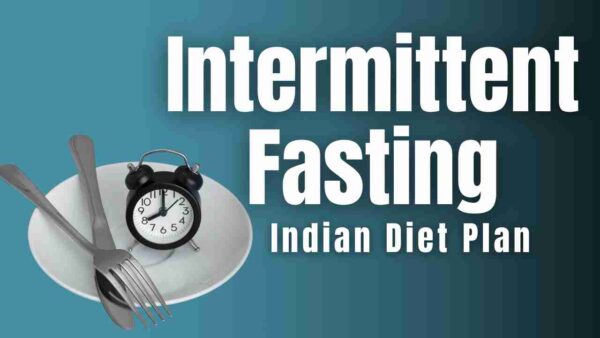Calorie counting may appear appealing as a foolproof weight loss strategy, but the “truth about Calorie Counting is we tend to lose the balance between weight loss and mental health.” The concept of “calories in, calories out” seems straightforward, leading us to believe that tracking our daily caloric intake will be the key to weight loss success. However, beneath the surface lies a more complex truth about calorie counting on our physical well-being and, perhaps more importantly, our mental health.

In this blog, we embark on a journey to uncover the realities of calorie counting, exploring its potential benefits and pitfalls while shedding light on the crucial balance between weight loss aspirations and mental well-being.
Does calorie counting work
Calorie counting is based on the scientific principle that the energy content of foods can be quantified in terms of calories. A calorie is a unit of energy, precisely the amount of energy required to raise the temperature of one gram of water by one degree Celsius. When we consume food, our bodies metabolise it to release energy, which is used for various physiological functions and daily activities.
Calorie counting has many benefits that work for people and help them achieve their goal of weight loss and intake of a balanced diet for a healthy lifestyle.
Benefits of calorie counting
Weight management:
Calorie tracking plays a crucial role in successful weight management, as our research findings suggest. Consistent tracking over an extended period significantly impacted weight change, providing a protective effect during challenging times like the holidays. Consistent tracking empowered participants to focus on programmatic goals, such as planning healthy meals and snacks during the holiday season while being mindful of calorie, fat, and sugar consumption. This mindful approach likely helped them resist temptations and maintain their weight loss trajectory.
Calorie Intake Calculator
Consistent healthy eating habits:
Calorie tracking can be a game-changer when it comes to developing consistent healthy eating habits. When you track your calories, you become more aware of the impact of different foods on your body. The fear of consuming extra calories becomes evident, making you think twice about reaching for junk food.
Instead, you naturally prioritise eating right by opting for nutrient-dense foods that provide essential nutrients without the excess calories. You find yourself gravitating towards wholesome options like fruits and vegetables, which contribute to fulfilling your nutritional needs while keeping calorie intake in check.
By adopting this mindful approach to eating, you improve your overall health and stay on track with your healthy eating goals. Calorie tracking empowers you to make informed choices, develop consistent healthy eating habits, and ultimately lead a healthier life.
What is the problem with calorie counting
Counting calories can be a useful tool for managing your weight and making sure you’re aware of the calories you’re taking in. It helps you stay on top of how much and what type of food you’re eating. However, it’s important to know that, in the long run, some issues with this approach can do more harm than good for your overall well-being.
8 signs and symptoms of vitamin C deficiency
We’ve all heard about the importance of vitamins and nutrients in maintaining good health. Among…
Signs and Symptoms of Vitamin B12 deficiency
Have you ever wondered if your body might be trying to tell you something important?…
Vitamin E deficiency: Cause, Symptoms, and Treatment
Vitamins have their own unique perks and jobs within our bodies. Today, we’re diving into…
Vitamin D deficiency: Cause, Symptoms, and prevention
Let’s enter the illuminating journey into the world of a truly remarkable vitamin – vitamin…
6 Vegetarian diet for weight loss and muscle gain
Weight loss and muscle gain are sensitive topics for vegetarians since it is thought that…
Proven Health Benefits of Dragon Fruits | Nutrition Meet
Dragon fruit is the latest craze among people, especially fitness freaks who like to eat…
Underestimation or biases in calorie counting
The practice of calorie counting is not immune to the influence of human error or a tendency toward obsessive behaviour. This can result in the underestimation of the actual caloric intake. It is noteworthy that individuals often do not meticulously measure every constituent of their meals, instead relying on estimation or assumption.
Studies have also revealed biases in calorie estimation linked to hunger, possibly related to justifying more food. These biases occur in people, especially those with low nutrition literacy. This introduces a degree of inaccuracy into the calorie counting process.
In this situation, you tend to gain weight instead of losing weight. Hence, it may lead to episodes of anxiety, anger, and low self-esteem, which are directly connected to the person’s mental health and encourage emotional eating.
Not all calories are equal.
When we concentrate only on counting calories, we might unintentionally overlook the goodness that comes from the nutrients in our food. Opting for low-calorie processed or artificially sweetened items instead of wholesome, nutrient-packed foods can actually affect our overall health and how we feel. It’s like missing out on the valuable benefits that a well-rounded meal can provide.
For instance, during snack time, you have two choices: a pack of biscuits, which will give you 100 calories, or an apple, which will also give you 100 calories. Which one to choose? Whatever you choose, there won’t be any effect on the calories you consume; instead, the difference here is in the nutrition you will get. Hence, it’s worth considering more than just the calorie count when making food choices.
Mental health vs. weight loss by calorie counting
The definition of being healthy not only considers outer physical health but also includes mental health. Nevertheless, when it comes to weight loss, the focus shifts only towards physical appearance, and mental health gets neglected. This is true more when you count calories.
Oftentimes, people aiming to lose weight use calorie-counting apps to monitor their intake. However, these apps can sometimes forget to consider the importance of mental well-being in tackling physical hurdles. Hence, many studies have shown that the participants using these apps have developed eating disorders.
Losing weight involves a balance between consuming the right nutrients and managing calories. Sadly, many opt for the calorie-counting approach, harming both body and mind. This method often leads to cutting out essential carbs, vital for our bodies. This deficiency sparks cravings, derailing plans and triggering anxiety, anger, and eventually eating disorders, which disrupt mental health and back to square with weight loss goals.
Over time, constantly tracking calories can transform into an obsession. For instance, someone might meticulously record every single morsel of food, feeling anxious if they can’t. This fixation can dominate their thoughts and actions, taking away the joy of eating and leading to social isolation. Such an example underscores how a well-intentioned strategy can turn into an unhealthy preoccupation.
How to become mindful of calorie counting
To truly practice mindful calorie counting, there are specific steps you should consider. These steps are crucial to prevent well-meaning intentions from morphing into an unhealthy fixation.
First off, being honest with yourself is key. Don’t downplay your calories just because you’re hungry or craving certain foods. This can steer you away from your goal and lead to frustration.
Another pitfall is fixating on numbers rather than what your food offers nutritionally. It’s vital to keep an eye on the nutritional value of what you’re eating. Prioritise the goodness your food brings to your body and mind over just the digits. This balanced approach works wonders.
Imagine being out with friends at a restaurant you’ve wanted to try. The menu features a dish you’re excited about, but you notice it’s higher in calories. Instead of automatically dismissing it due to the calorie count, use calorie counting as a tool. Choose the dish if it genuinely appeals to you and fits your daily goals. By doing so, you balance enjoying social experiences and being mindful of your intake rather than strictly adhering to numbers and potentially missing out on a pleasurable meal.
By finding harmony between your social life and health aspirations, you’re not just taking care of your body, but also nurturing your mental well-being. Just as a resilient mind can accomplish incredible feats, you’ll experience remarkable results when you conscientiously balance calorie intake and counting with your mental health. It’s about embracing both sides for a more fulfilling and successful journey.
FAQ
What to do instead of counting calories?
Instead of counting calories, one can always eat wholesome and minimally processed foods, keep hydrated and start listening to their body’s hunger and fullness cues.
Why is counting calories pointless?
Counting calories is considered pointless due to its oversimplification of nutrition, potential negative impact on nutrient quality, and disregarding natural hunger cues. It can lead to stress, disordered eating habits, and inaccuracies.
Does calorie counting work for weight loss?
Calorie counting can aid weight loss by creating a calorie deficit, but its effectiveness varies based on metabolism and lifestyle. Quality of food matters too. It may only suit some, as some find it restrictive. A balanced approach with portion control, mindful eating, and activity is crucial. Consulting a professional can help design a personalized weight loss plan for sustainable results.
Best 7 days Intermittent fasting diet plan Indian
Whether you talk about India or any part of the world, fasting has always been integral to the culture. But with modernisation, changing beliefs and the urge to know the logical scientific reason before accepting anything, fasting has become a tool for weight loss and healthy life in terms of Intermittent fasting.…
8 signs and symptoms of vitamin C deficiency
We’ve all heard about the importance of vitamins and nutrients in maintaining good health. Among these essential players, vitamin C takes a spot in the limelight, known for its immune-boosting powers and role in skin health. But what happens when you are not giving enough vitamin C, and as a result, you…
Signs and Symptoms of Vitamin B12 deficiency
Have you ever wondered if your body might be trying to tell you something important? Well, let’s talk about the “Signs and Symptoms of Vitamin B12.” Your body has a unique way of sending signals when something is amiss, and in this exploration, we’ll delve into those subtle hints and clues that…
Vitamin E deficiency: Cause, Symptoms, and Treatment
Vitamins have their own unique perks and jobs within our bodies. Today, we’re diving into the world of a specific vitamin that holds a special power known as “tocopherol” properties which means “to bear offspring.” By now, you know that we are talking about vitamin E, the potent antioxidant which supports the…
Delicious Goan Kokum Solkadhi Recipe & Health Benefits
At least once in your life, you’ve likely come across the concept of a digestive beverage accompanying every meal. This practice carries unique significance within each culture. And today, I bring to you something fitting this description, Goan Kokum Solkadhi recipe. This renowned and highly popular digestive drink hailing from Goa is…
Vitamin D deficiency: Cause, Symptoms, and prevention
Let’s enter the illuminating journey into the world of a truly remarkable vitamin – vitamin D, often called the “sunshine vitamin.” Yes, you guessed it right! It’s the vitamin that’s gifted to us by the glorious sun, free of charge, waiting for us to reach out and embrace its benefits simply. But…

















